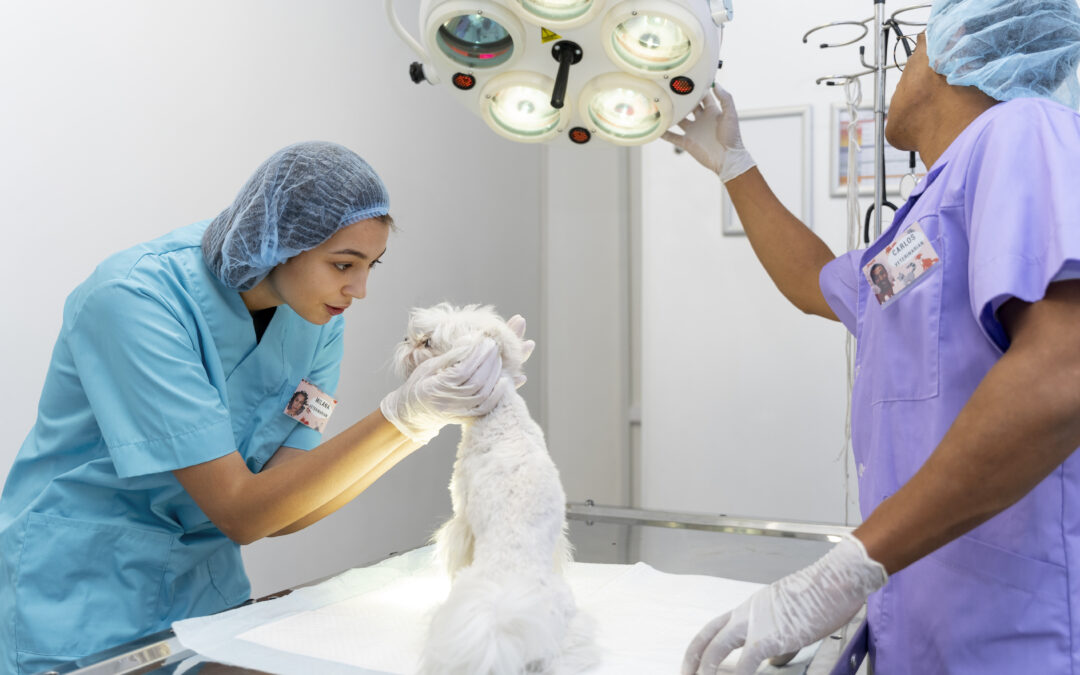


Pyometra is a relatively common infection of the uterus that occurs in unspayed female dogs and cats, most often over 5 years of age. . The condition involves the buildup of purulent material in the uterus, and it usually occurs several weeks after a pet has gone through a heat cycle (estrus).
Pyometra is primarily caused by hormonal changes, particularly the influence of progesterone following the estrus cycle. After a pet’s heat cycle, progesterone levels remain high, stimulating the uterine lining to thicken in preparation for pregnancy. If the pet does not become pregnant, this thickened lining can create a perfect environment for bacterial growth. Infections typically occur due to bacteria entering the uterus during the heat cycle, often through the cervix when it’s open.
Understanding the two types of pyometra:
Your pet will either have an open or closed pyometra, and the only way to know which one your pet is dealing with is to seek care from a veterinarian.
- Open Pyometra: In this form, the cervix is open, allowing pus to drain from the uterus. This can make it easier to identify the condition because of visible discharge.
- Closed Pyometra: In this form, the cervix remains closed, which prevents pus from draining. This is more dangerous as the infection and toxins stay trapped in the uterus, making it harder to detect and more likely to cause severe illness.
Common symptoms of pyometra
The symptoms of pyometra can vary, depending on whether the pet has an open or closed form of the condition. However, common signs to watch for include:
- Vaginal Discharge: In cases of open pyometra, you may notice a foul-smelling, pus-like discharge from the vagina.
- Lethargy: Pets may seem unusually tired or inactive.
- Increased Thirst and Urination: The infection can cause kidney issues, leading to increased drinking and urination.
- Vomiting or Diarrhea: Gastrointestinal distress is common as the infection progresses.
- Abdominal Swelling: With closed pyometra, the abdomen may become distended due to the buildup of pus.
- Loss of Appetite: Many pets with pyometra will stop eating.
Prevention and treatment
The best way to prevent pyometra is to have your pet spayed. Spaying your dog or cat before their first heat cycle significantly reduces the risk of reproductive diseases, including pyometra. Additionally, spaying eliminates the risk of ovarian or uterine cancers, as well as unwanted pregnancies.
The most common and effective treatment for pyometra is an emergency spay surgery (ovariohysterectomy). During the surgery, the infected uterus and ovaries are removed. For pets that are severely ill, additional treatments like intravenous fluids, antibiotics, and medications to stabilize them may be required before surgery.
Knowing the signs and understanding the severity of pyometra is incredibly important for the health of your female pet.
If your pet needs to see a veterinarian today, our teams are available for you 7 days a week in Massachusetts and Rhode Island. Book online or view our hours before you walk-in at veturgentcare.com



